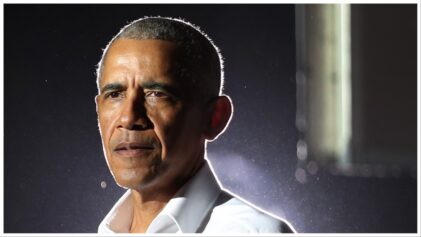President Obama is using the announcement of American troop withdrawals from Afghanistan as an opportunity to outline his vision for the next chapter in American foreign policy—one that uses reason and cooperation around the globe to return moral credibility to the U.S. and add to its list of allies in rooting out global terror.
With a speech today to the graduating officers at West Point, the president is planning to map out America’s new role in the world—the middle between interventionism and isolationism that will keep the nation out of unnecessary conflicts in future like Iraq and Afghanistan, which proved to be an enormous drain on the nation over more than a decade.
“This new chapter in American foreign policy will allow us to redirect some of the resources saved by ending these wars to respond more nimbly to the changing threat of terrorism, while addressing a broader set of priorities around the globe,” Obama said yesterday to reporters as he announced that the U.S. troop presence in Afghanistan will be slashed to under 1,000 by the end of 2016, when he will be leaving office.
“I’m confident that if we carry out this approach, we can not only responsibly end our war in Afghanistan and achieve the objectives that took us to war in the first place, we’ll also be able to begin a new chapter in the story of American leadership around the world,” Obama said in the White House Rose Garden.
Ironically as Obama carries out the wishes of the American public and extricates the nation from costly overseas interventions—a platform on which he was elected twice—he increasingly leaves himself open to the criticisms from the right that he is weak and ineffectual around the world, emboldening other countries to challenge U.S. global supremacy.
Many Democrats are fearful that this critique will be used against them in the midterm elections—though the withdrawal has the support of a majority of the American public still reeling from economic recession.
“Although I am pleased the president has acknowledged that abandoning Afghanistan at this important moment would undermine the hard-won gains of our armed forces who have sacrificed so much to protect our country since the 9/11 attacks, it is my strong desire that the administration revisit conditions on the ground in 2015 and 2016 to determine if a full withdrawal is warranted,” Republican Sen. Bob Corker of Tennessee, ranking member of the Senate foreign affairs committee, said in a statement.
“President Obama is not ending wars, he’s losing them,” South Carolina Republican Sen. Lindsey Graham said on Tuesday.
At a Brookings Institution policy debate, according to The Guardian, historian Robert Kagan said, “What we are facing is not war weariness, but world weariness. I have begun to wonder whether we may be heading into a period that is not just a shallow and temporary retrenchment that we saw during the Cold War [immediately after Vietnam and Korea], but is actually a much deeper and much longer retrenchment of the kind we saw after World War I.”


